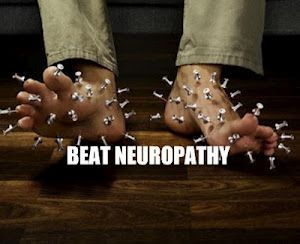ILLINOIS, USA. October 9th, 2023 – Neuropathy is a medical condition characterized by damage or dysfunction of the nerves, usually in the peripheral nervous system. The peripheral nervous system consists of nerves outside the brain and spinal cord, and it plays a crucial role in transmitting signals between the central nervous system (the brain and spinal cord) and the rest of the body, including muscles, skin, and internal organs.
There are various types and causes of neuropathy, including:
- Diabetic Neuropathy: This is one of the most common types and occurs as a complication of diabetes. High blood sugar levels over time can damage nerves, leading to symptoms such as numbness, tingling, pain, and muscle weakness, usually starting in the feet and spreading upwards.
- Peripheral Neuropathy: This is a general term for nerve damage in the peripheral nervous system that can result from various underlying conditions, including infections, autoimmune disorders, alcoholism, certain medications, and exposure to toxins.
- Carpal Tunnel Syndrome: This is a type of neuropathy that affects the median nerve in the wrist, leading to symptoms like pain, numbness, and weakness in the hand and fingers.
- Autonomic Neuropathy: This affects the autonomic nervous system, which controls involuntary bodily functions like heart rate, digestion, and blood pressure. Symptoms can include dizziness, digestive issues, and problems with regulating body temperature.
- Hereditary Neuropathies: These are genetic conditions that lead to nerve damage and often manifest in childhood or adolescence.
- Idiopathic Neuropathy: Sometimes, the cause of neuropathy is unknown, and it is referred to as idiopathic neuropathy.
The symptoms of neuropathy can vary depending on the type and severity but often include sensations like pain, tingling, numbness, and muscle weakness. These symptoms can significantly impact a person’s quality of life, as they may affect mobility, coordination, and the ability to perform daily tasks.
Treatment for neuropathy depends on its underlying cause. In some cases, addressing the underlying condition, such as managing diabetes or discontinuing a medication, can help alleviate symptoms. Other treatments may include medications to manage pain, physical therapy, lifestyle changes, and in some cases, surgery. The specific treatment approach should be determined by a healthcare professional after a thorough evaluation and diagnosis. Early detection and management are essential for preventing further nerve damage and improving the prognosis for individuals with neuropathy.
For more education visit: https://www.touchofwellness.biz

